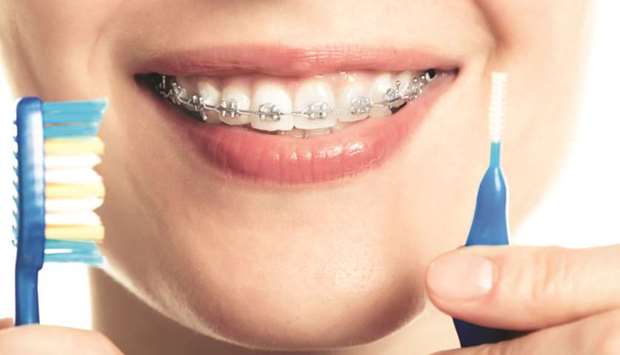For many of us, the routine trip to the dentist is just one of the ways in which our lives have been disrupted in 2020. The British Dental Association (BDA) estimates that, since the March lockdown, dentists in England have provided nearly 19m fewer treatments than in the same period last year.
What do you need to know about dental emergencies, and what more can you do to care for your teeth? We asked the experts.
What can I do to care for my teeth while I can’t get to a dentist?
“The majority of dental problems are preventable,” says Walmsley. Brushing your teeth in the morning and at night, for two minutes each time, will generally be enough to prevent tooth decay and gum disease. Studies have shown, however, that people brush for an average of 43 seconds. “Four minutes a day is not a lot to ask,” says Dr Nigel Carter, the chief executive of the Oral Health Foundation.
What kind of toothpaste should I use?
Any toothpaste with fluoride will do. Not only does it help to prevent tooth decay, but it slows down the rate of progression of any existing decay. Carter is concerned by the increasing availability of “natural” toothpastes without fluoride. Water fluoridation is not widespread in the UK, “so we really do need that protection”, he says.
Is it a good idea to switch to an electric toothbrush?
What you brush with is less important than brushing. Walmsley says a manual toothbrush is just as effective as a powered one if you brush for two minutes, twice a day. Some electric toothbrushes, however, have a timer – or even an app – to help you to be more thorough. “I can say from personal experience that it’s moved me from 1.5 minutes to 2 minutes,” says Carter of his electric toothbrush.
How often should I replace my toothbrush?
Dentists recommend replacing your toothbrush or brush head every three months. Very few people do.
“As a nation, we use 1.2, 1.3 heads a year,” says Carter. “There are a lot of very old, scraggy toothbrushes out there.”
Does brushing your teeth reduce your coronavirus risk?
Martin Addy, emeritus professor of dentistry at the University of Bristol, has argued that more frequent brushing should be promoted alongside hand-washing to protect against coronavirus, as the antimicrobial agents in toothpaste and mouthwash reduce mouth bacteria.
A link with brushing has not yet been substantiated, but last week a Cardiff University study found “promising signs” that mouthwash may help to kill coronavirus. Further research into how oral hygiene might factor into reducing coronavirus risk is under way.
What else can I do apart from brushing thoroughly?
If you already floss regularly, stick with it. If you have yet to make it a habit, pick up some interdental brushes, which are easier to use than string floss. Interdental cleaning is especially important if you have a history of gum disease. Do it before you brush.
What else should I be mindful of?
“Being conscious of what you’re eating and when is also vital for a healthy mouth,” says Nyree Whitley, group clinical director for the dental care provider mydentist. Many people have been consuming more sugar and alcohol during the pandemic, which is detrimental to oral health over a prolonged period. Whitley suggests limiting snacks and consuming sugar only as part of a meal.
My gums bleed after brushing and flossing. Should I be worried?
People can be put off by this, especially when starting a new oral care regimen, but Carter’s advice is to persevere. “It’s not an indication you’re brushing too hard: it probably means you haven’t been brushing well enough.” The bleeding indicates some level of gum disease, and will probably stop as your gums become healthier.
Whitley says that dentists reported patients’ gum disease had got worse in the months between the first lockdown and practices reopening mid-year: “It’s a good reminder of just how quickly gum disease can worsen.”
Can I replicate a professional hygienist’s clean at home?
This is “straying into DIY dentistry,” says Walmsley. Even with his expertise, he knows better than to attempt dentistry on himself. “You could easily get yourself into trouble,” he says. If there is visible plaque or tartar (calcified plaque) around the necks of your teeth, talk to your dentist about the possibility of booking in for a scale and polish.

